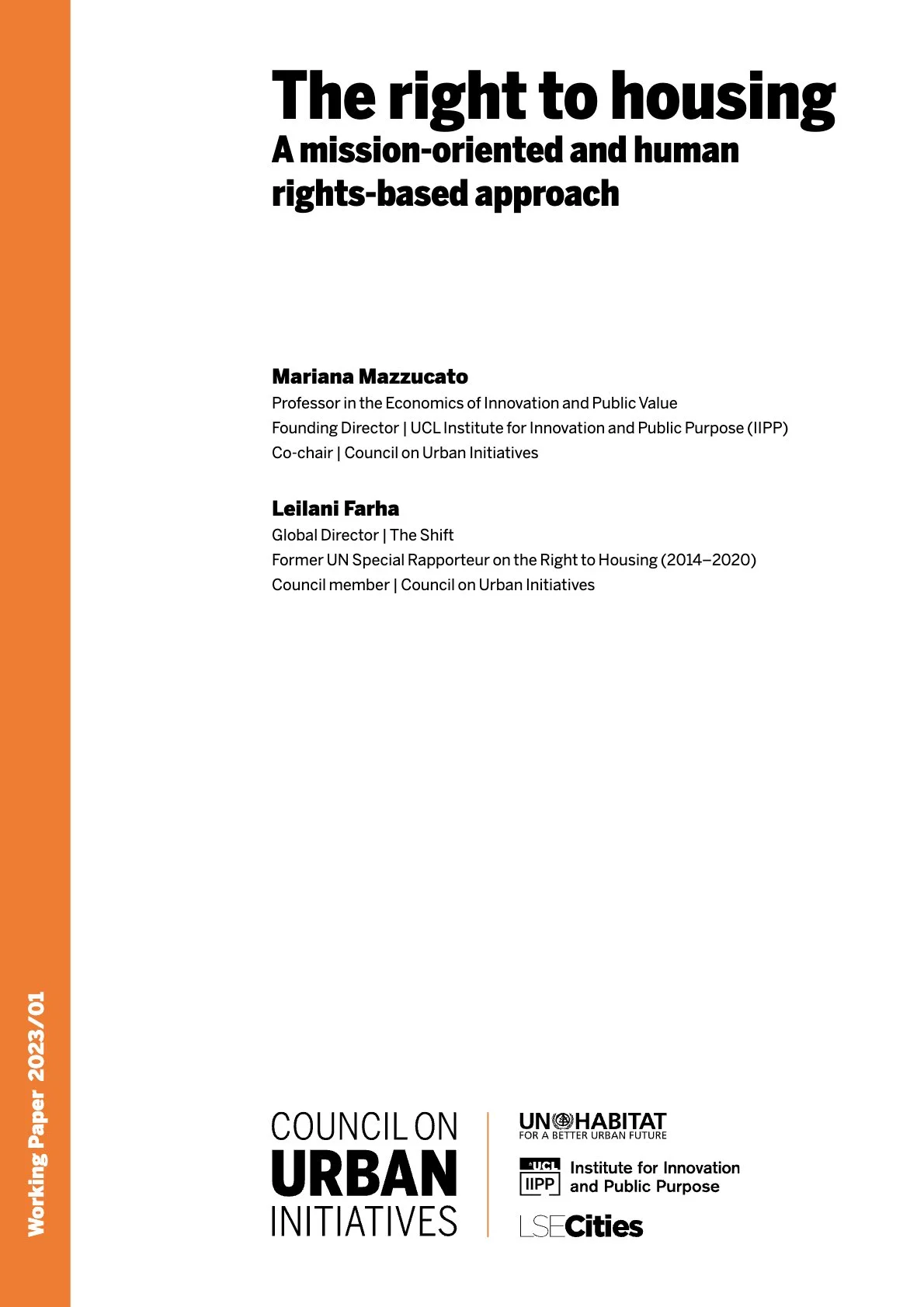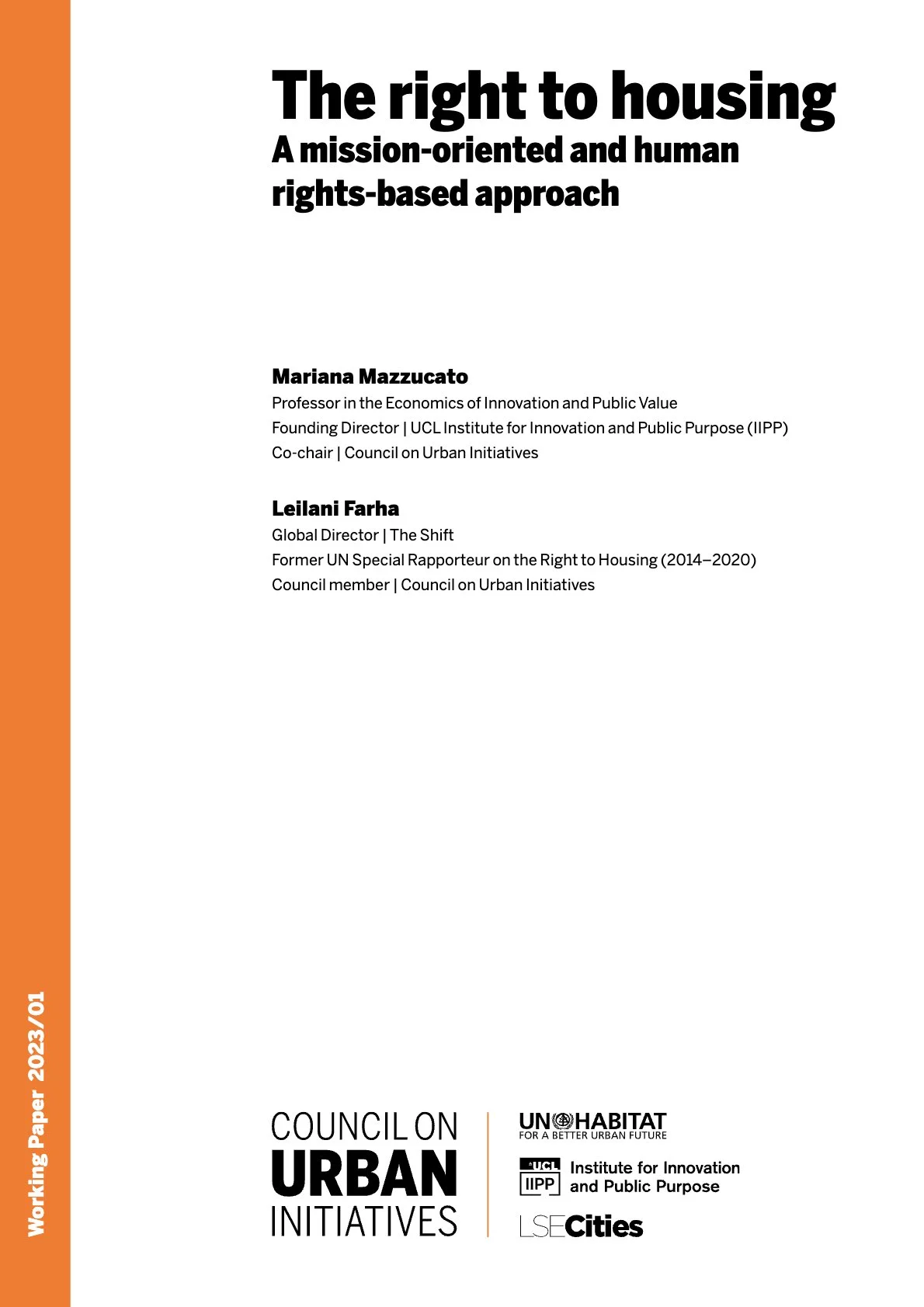AI-Generated Summary
Context and Purpose
The document titled "The Right to Housing - A Mission-Oriented and Human Rights-Based Approach" is published by the Council on Urban Initiatives, which aims to support transformative shifts towards a better urban future through research and advocacy. It is authored by Mariana Mazzucato, a professor in the Economics of Innovation and Public Value, and Leilani Farha, the Global Director of The Shift and former UN Special Rapporteur on the Right to Housing. The paper emphasizes the necessity of viewing housing as a fundamental human right rather than a commodity.
Housing as a Human Right
Housing is recognized as a fundamental human right essential for well-being and a foundation for other rights, including health and education. The paper notes that over a billion people globally lack adequate housing, facing issues such as homelessness and unaffordability. In urban areas, housing costs are rising faster than incomes, leading to widespread evictions and inadequate living conditions.
Current Housing Crisis
The document highlights alarming statistics: 1.8 billion people live without a home or in inadequate housing, and in 2020, 700,000 people in the European Union were homeless. The average home costs more than three times the average income in many cities, with $929 billion needed to improve inadequate urban housing for 881 million individuals. The crisis is exacerbated by climate change, with buildings contributing approximately 36% of global CO2 emissions.
Mission-Oriented Approach
To address the housing crisis, the authors propose a mission-oriented policy framework that combines human rights principles with economic strategies. This framework requires governments to set bold missions that catalyze cross-sectoral investment and collaboration. The United Nations Sustainable Development Goal (SDG) 11.1 aims to ensure access to adequate, safe, and affordable housing for all by 2030, serving as a guiding principle for this new approach.
Collaborative Governance
The paper argues for a whole-of-government approach that engages various sectors—housing, healthcare, and finance—to address the housing crisis comprehensively. It emphasizes the need for public, private, and third-sector partnerships to create a housing ecosystem that prioritizes human rights and societal needs.
Key Pillars for Action
The authors outline six key pillars for implementing a housing mission: 1. Commit to a bold housing mission. 2. Reshape the housing market to prioritize common good. 3. Build an entrepreneurial state to support these initiatives. 4. Foster partnerships that align with mission goals. 5. Implement public value-driven financing. 6. Ensure robust monitoring and accountability mechanisms.
Sustainable Solutions
The document concludes by advocating for sustainable housing solutions that meet the needs of marginalized communities. It argues that the right to housing must be embedded in legislation and that governments should engage in participatory processes to ensure effective implementation.
Call to Action
The authors stress that solving the housing crisis will require rethinking the role of government as a market-shaper and innovator. They call for a commitment to develop a housing system that reflects human rights principles, ensuring that housing is viewed as a fundamental right for all rather than a mere financial asset.

